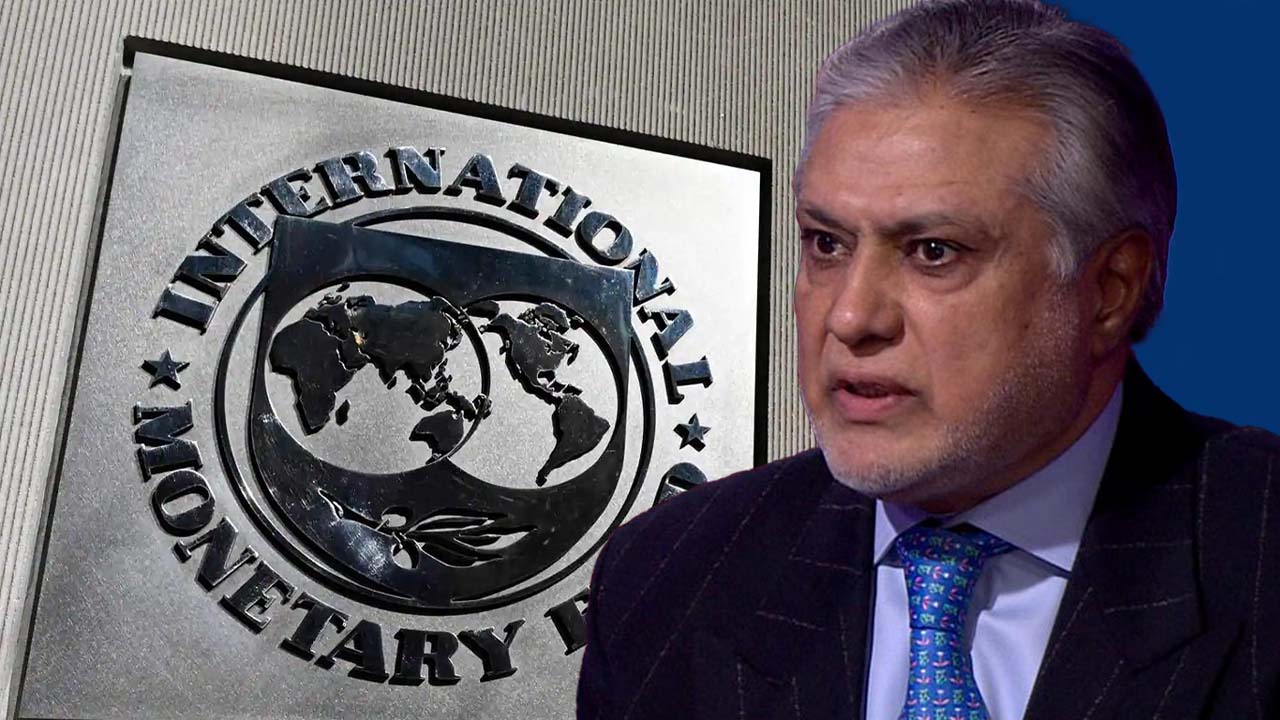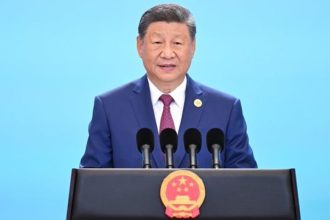Finance and Revenue Minister Ishaq Dar, on Thursday, adamantly declared that Pakistan would not fall into default, irrespective of the status of its stagnant loan program with the International Monetary Fund (IMF).
At the Islamabad Security Dialogue, Dar addressed the persistent holdup in signing a staff-level agreement (SLA) with the IMF to release a critical economic bailout. This comes on the heels of a cautionary note from Moody’s Investor Service earlier this week, expressing that without an IMF program, Pakistan’s foreign exchange reserves, currently at a “very weak” level, could push the country towards default. Similarly, Fitch Ratings warned of a default or debt restructuring looming large as a real risk for Pakistan.
Read: Pakistan Faces Default Risk Without IMF Program: Moody’s Warning
However, Dar dismissed these concerns as mere “rumors,” reinforcing that Pakistan would not fall into default regardless of the outcome with the IMF. He asserted that the country had met all prerequisites and taken the necessary steps toward finalizing an agreement with the IMF to revive the frozen loan program.
“Internationally, people are astounded by how Pakistan is managing,” Dar stated, calling for an end to “unjust” international politics against Pakistan.
He further shared that Pakistan had debts amounting to $3.7 billion due by June, reassuring that the country would fulfill all commitments and make timely payments. Despite the “gap” in the external account discussion with the IMF that ended on February 9, he emphasized that Pakistan would punctually make its external debt repayments in May and June.
Dar urged international rating agencies to cease discussions on Pakistan’s potential default, mentioning that financing for payments in the current fiscal year will be arranged with the help of friendly nations.
Read: Pakistan’s Economic Quandary: IMF Calls for ‘Significant Additional Financing
Pakistan has been in protracted negotiations to reboot a $6.5 billion bailout with the IMF for about six months. Its foreign exchange reserves are strained, currently providing nearly one month of import cover. However, the country has procured financial support from Middle Eastern countries and China, fulfilling an important IMF condition.
As the country grapples with an economic crisis, with inflation peaking at a historic 36.4% – the highest in South Asia, and an intense political feud with former prime minister Imran Khan, the government has lifted caps on the exchange rate, introduced taxes, high energy tariffs, and cut back subsidies in a bid to unlock IMF funding. Key interest rates have also been hiked to a record 21%.
Despite the precarious state of Pakistan’s foreign reserves, Dar’s firm assurances that the country will not default persist, though analysts are increasingly skeptical given the critical level of the reserves.






